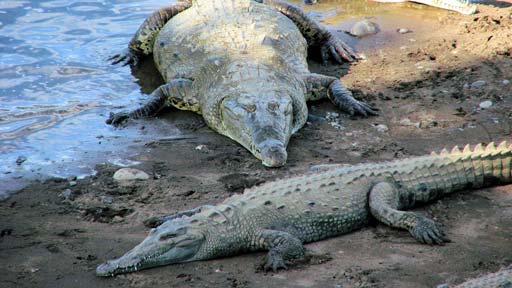
A steroid used in tilapia farming may be changing the sex of crocodiles in Costa Rica’s Palo Verde National Park, according to new research.
After examining close to 500 crocodiles — by probing an area under the tail called the cloaca to determine their gender — researchers noticed something weird: male hatchlings outnumbered females four to one, according to a Science Magazine report.
While humans and other mammals have sex chromosomes that determine gender, the sex of crocodiles and some other reptiles depends on the temperature inside the nest. Temps between 31.7 and 34.5 degrees Celsius produce males, and anything lower or higher usually leads to female crocs.

Under normal circumstances, warming global temperatures should have led to more females – by a ratio of nearly two to one, the researchers estimate. But that wasn’t the case in Costa Rica, where the 2.5 degrees in the last two decades, according to Science Magazine.
So what’s causing this strange trend?
The culprit may be a hormone called 17α-methyltestosterone (MT), which the researchers discovered in the tissues of the crocodiles they examined. The synthetic steroid is used to treat men with testosterone deficiencies and is sometimes used illegally by bodybuilders to build muscle.
Some tilapia farmers also feed the hormone to their hatchlings to produce males, which grow faster and make more money. The researchers are investigating whether tilapia farms near the park could have contaminated the crocodiles.
The disproportionate male-female ratio could lead to greater, unintended consequences. Fewer females could slow the rate of reproduction for the vulnerable American crocodile species. And the masculinizing hormone could produce more aggressive crocodiles, including the number of attacks on humans.

Watch the video below to learn more:




